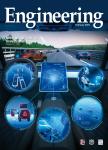Information Science Should Take a Lead in Future Biomedical Research
Information Science Should Take a Lead in Future Biomedical Research作者机构:The Institute of Medical ScienceThe University of TokyoTokyo 108-8639Japan
出 版 物:《Engineering》 (工程(英文))
年 卷 期:2019年第5卷第6期
页 面:1155-1158页
核心收录:
学科分类:08[工学] 0812[工学-计算机科学与技术(可授工学、理学学位)]
基 金:Japan Society for the Promotion of Science KAKEN (17K00397)
主 题:Data science Artificial intelligence Next-generation sequencing DNA Cancer genome Single-cell transcriptomics
摘 要:In this commentary, I explain my perspective on the relationship between arti cial intelligence (AI)/data science and biomedicine from a long-range retrospective view. The development of modern biomedicine has always been accelerated by the repeated emergence of new technologies. Since all life systems are basically governed by the information in their own DNA, information science has special importance for the study of biomedicine. Unlike in physics, no (or very few) leading laws have been found in biology. Thus, in biology, the “data-to-knowledge approach is important. AI has historically been applied to bio- medicine, and the recent news that an AI-based approach achieved the best performance in an interna- tional competition of protein structure prediction may be regarded as another landmark in the eld. Similar approaches could contribute to solving problems in genome sequence interpretation, such as identifying cancer-driving mutations in the genome of patients. Recently, the explosive development of next-generation sequencing (NGS) has been producing massive data, and this trend will accelerate. NGS is not only used for “reading DNA sequences, but also for obtaining various types of information at the single-cell level. These data can be regarded as grid data points in climate simulation. Both data science and AI will become essential for the integrative interpretation/simulation of these data, and will take a leading role in future precision medicine.



